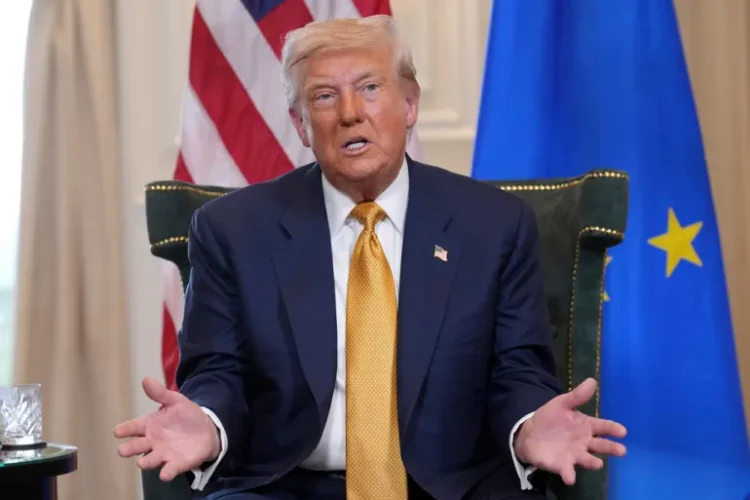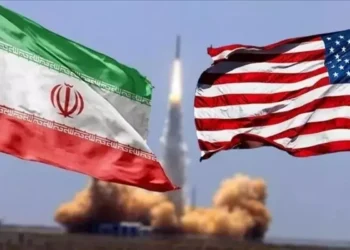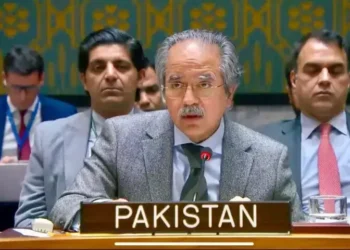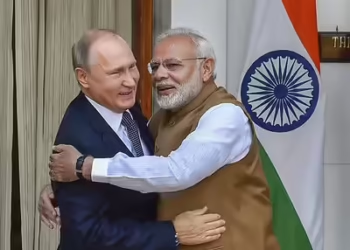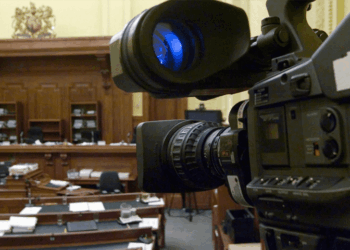“Five Jets Were Shot Down — We Ended It Through Trade,” Trump Claims Role in Defusing India-Pakistan Conflict
SCOTLAND: Amid intensifying global crises, former U.S. President Donald Trump has issued a fresh ultimatum to Russia to end its war in Ukraine within 10 to 12 days, while simultaneously threatening renewed military action against Iran over its nuclear ambitions.
Speaking alongside British Prime Minister Keir Starmer during a press conference in Scotland, Trump expressed deep frustration with both Russian President Vladimir Putin and Iranian leaders.
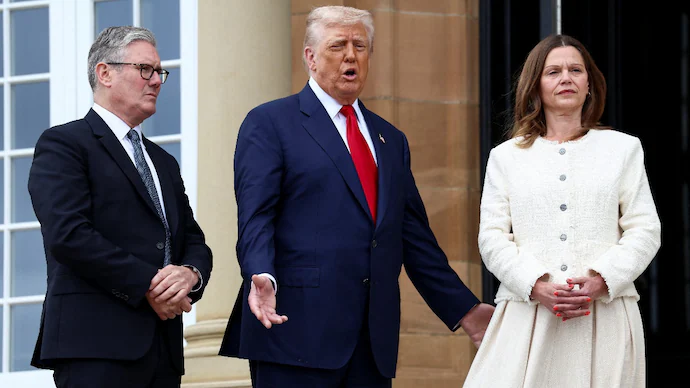
He accused Moscow of dragging its feet on peace efforts in Ukraine and warned Tehran against resuming uranium enrichment, claiming the U.S. would “wipe out” any revived nuclear infrastructure faster than before.
Trump’s double-barreled warnings come as his second-term campaign gains momentum and as he seeks to reassert his image as a global dealmaker amid ongoing conflicts in Ukraine, Gaza, and growing tensions in the Middle East.
This move reflects Trump’s growing frustration with Russia’s continued military aggression, despite Washington’s diplomatic efforts. Although the Kremlin has not yet responded, Trump warned that further inaction could lead to severe consequences, including expanded sanctions and tariffs targeting both Russia and countries purchasing its exports.
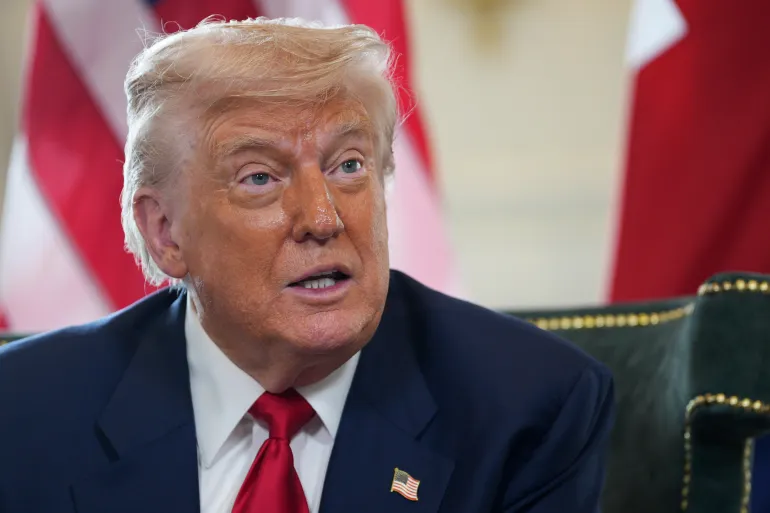
During his campaign to return to the White House in January, Trump pledged to resolve the war in Ukraine within 24 hours, portraying himself as a decisive peacemaker. However, critics point out that he has often failed to follow through on his tough rhetoric particularly due to his perceived cordial relationship with Putin. Trump also expressed dissatisfaction with Ukrainian President Volodymyr Zelenskyy, further complicating his stance.
In the same press conference, Trump doubled down on threats against Iran following recent U.S. airstrikes on three of its nuclear sites. Responding to Tehran’s insistence on continuing uranium enrichment for civilian purposes, Trump warned that any renewed activity would be met with overwhelming force: “We wiped out their nuclear possibilities. If they restart, we’ll eliminate them again — faster than you can wave a finger.”
This hardline stance comes after Iranian officials, including Foreign Minister Abbas Araghchi, reiterated Iran’s right to enrichment ahead of recent talks with the UK, France, and Germany. Although these negotiations were described as “serious and detailed,” they yielded no breakthroughs. Iranian President Masoud Pezeshkian told Al Jazeera that while Tehran is open to dialogue, he remains pessimistic about the durability of the ceasefire with Israel.
Meanwhile, tensions with Israel also continue to rise. Israeli Defence Minister Israel Katz issued a direct threat to Iran’s Supreme Leader Ali Khamenei, vowing that Israeli forces could strike Tehran “with even greater force and personally.” Analysts suggest that any Israeli military action would likely require implicit U.S. approval.
Trump previously hailed the June 22 U.S. strikes on Iran’s Fordow, Natanz, and Isfahan facilities as having “obliterated” Iran’s nuclear program, though subsequent intelligence suggests the actual damage may have only temporarily delayed progress.
Trump further accused Iran of meddling in recent Gaza ceasefire negotiations, claiming — without evidence — that Tehran was directing Hamas during U.S.-brokered talks in Qatar that ultimately collapsed.
In a separate development, Trump reiterated his claim of having played a key role in de-escalating a near-war situation between India and Pakistan in May of last year.
Speaking at his Turnberry resort, he said trade leverage was used to prevent further escalation after five fighter jets were reportedly downed. Trump praised Pakistani military chief Asim Munir and Indian Prime Minister Narendra Modi, calling them “a fantastic man.”
While Pakistan quietly backed Trump’s version of events and even nominated him for the 2026 Nobel Peace Prize, India rejected the notion of U.S. mediation, insisting that the ceasefire resulted solely from direct military-to-military communication. Despite the denial, Trump has repeatedly expressed disappointment over the lack of global recognition for his efforts.




















































